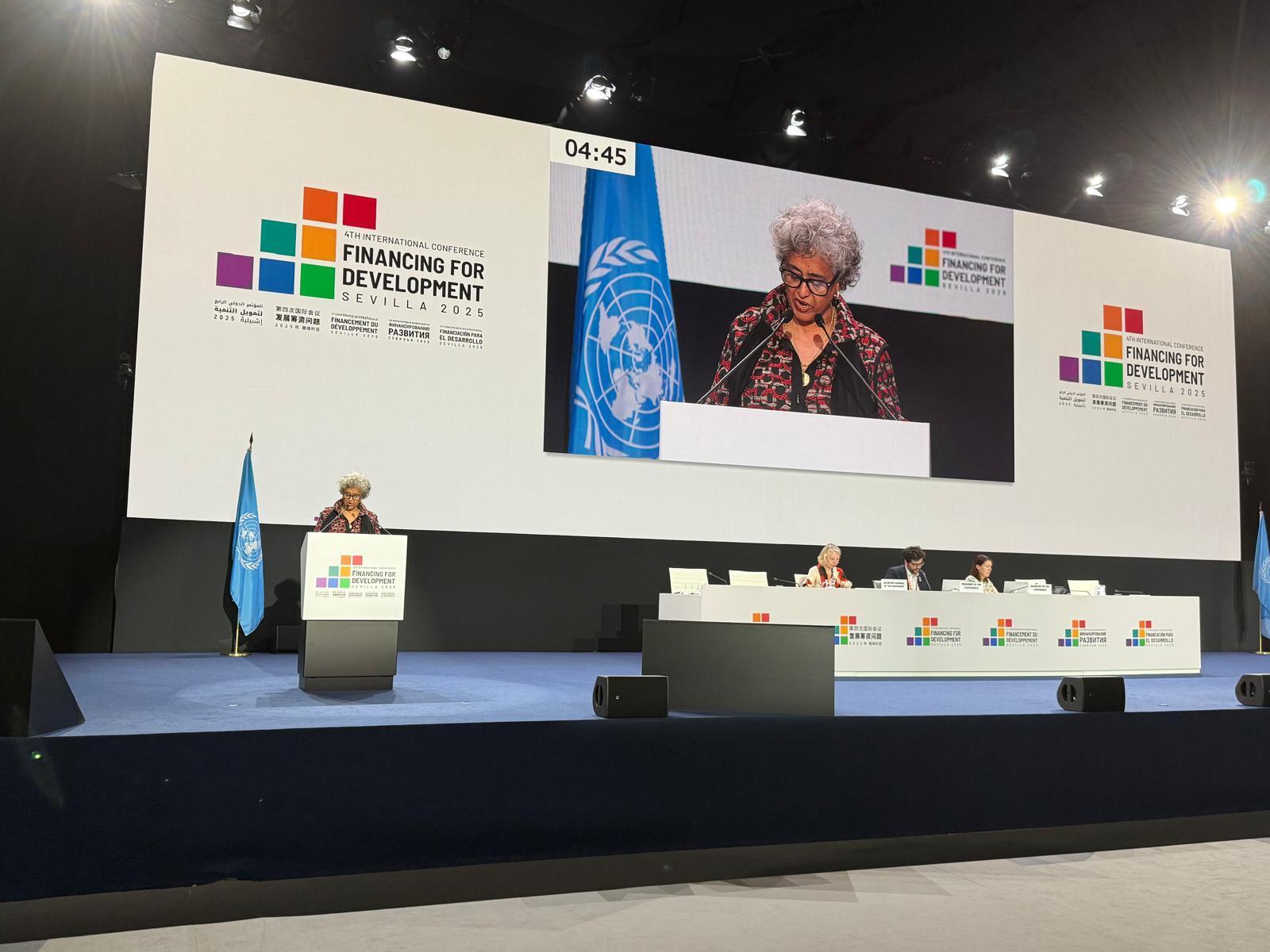Africa-Press – Eritrea. Mr. President, Excellencies, Heads of State and Government, , Distinguished Delegates, Ladies and Gentlemen,
Eritrea extends its gratitude to the Government and people of the Kingdom of Spain for hosting this important conference and for the warm hospitality accorded to our delegation. We also express our sincere appreciation to the co-chairs of the preparatory committee, Burundi and Portugal and the co-facilitators, Mexico, Nepal, Norway and Zambia, for their diligent work in preparing the outcome document of this Fourth International Conference on Financing for Development.
Eritrea aligns itself with the statements delivered by Iraq, Angola and Nepal, on behalf of the G77 and China, the African group and the Least Developed Countries, respectively.
For many governments, particularly those of Least Developed Countries (LDCs), development is not merely a matter of policy preference; it is an existential imperative. Eradicating poverty and achieving food security are urgent priorities. These challenges are not isolated; they are results of deeper structural inequalities and systemic underdevelopment that must be urgently addressed.
The development realities that confront us today remain deeply troubling. Our challenges go well beyond financing gaps. Many developing economies are still locked into dependence on the extraction and export of raw natural resources with low value addition, while importing high-cost industrial goods.
This dynamic perpetuates the transfer of wealth and constrains domestic development. Transforming these asymmetrical economic relationships is imperative.
The most fundamental constraint we face is the limited productive capacity of our economies. Over the past four decades, the structural foundations of many African economies have remained stagnant. Reversing this trend requires bold and sustained international support to build productive capacity in industry, agriculture, and services. The United Nations and the international community must renew their commitment to this goal to help unlock sustainable growth, generate decent employment, and enable long-term development.
We also face persistent technological barriers. Developing countries continue to be hindered by limited access to global markets, restricted technology transfer, and restrictive intellectual property regimes that inhibit the flow of vital knowledge and innovation. Without equitable access to advanced technologies, our progress will remain constrained.
Moreover, unilateral coercive measures, including sanctions, extraterritorial restrictions and politically motivated trade barriers, undermine development and violate international law.
These policies undermine the stability of developing economies, deepen poverty, and erode the principles of multilateral cooperation. Eritrea has experienced firsthand the stifling effects of such measures, which restrict access to capital, technology, and essential goods. Removing these constraints is essential to enabling nations like Eritrea to pursue self-determined development pathways.
Excellencies,
Overcoming these challenges calls for a bold reconfiguration of the global financial and economic system, one anchored in equity, sustainability, and solidarity. Financing for development is not about aid alone. It is about dismantling structural imbalances, enabling fair participation in global markets, and preserving national policy space for countries to pursue inclusive and sovereign development.
Eritrea welcomes the Seville outcome document’s reaffirmation of each country’s primary responsibility for its own economic and social development. But this principle must be supported by international frameworks that empower, rather than penalize, countries that are striving for resilience and self-reliance.
Eritrea’s development strategy has long prioritized self-reliance, equity and national ownership. Despite external constraints, Eritrea has invested in human capital, infrastructure, and institutional capacity development, emphasizing long-term sustainability over dependency.
Eritrea values cooperation and partnership that respects national priorities and ownership. We are committed to enhancing domestic resource mobilization, including through improved tax administration. We welcome the focus on international tax cooperation under a UN led framework. Global tax cooperation must be fair and inclusive, must respect national sovereignty and reflect capacity constraints. Tax reforms should not become hidden conditionalities.
We also recognize the vital role of our diaspora in contributing to national development and therefore welcome efforts to reduce the cost of remittance transfers. Diaspora engagement remains a cornerstone of Eritrea’s economic strategy, not only through remittances but also through knowledge transfer, entrepreneurship, and community-driven development initiatives.
For Eritrea and many developing states in the Global South, the challenge has never been a lack of will or ideas, it has been a lack of fair rules, predictable support and respectful partnerships.
Let this conference be more than a forum for dialogue, let it serve as a catalyst for bold and collective action.
I Thank you.
For More News And Analysis About Eritrea Follow Africa-Press







